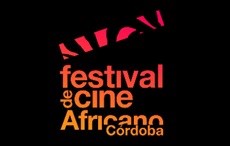
Top stories






More news



The activity consisted of a twofold panel - on the one hand, a round table with African filmmakers and expert on African Film Criticism, Olivier Barlet, revolving around the present of African cinemas, and the presentation of the book Les cinémas d'Afrique dans les années 2000 by Barlet.
In addition to Barlet, the second panel has hosted some of the most relevant experts on this field to discuss the current situation of African cinemas. Among them, South African filmmaker, Arya Lalloo, whose documentary film Jeppe on a Friday(2012) is in the official selection of FCAT Cordoba 2013; Algerian filmmaker, Lamine Ammar Khodja, and Senegalese filmmaker William M'baye, whose documentary filmPrésident Dia (2012) is also lined up for the official selection of this festival. The panel has revolved around the need for finding new ways of funding both popular cinema and 'cinéma d'ateur' and for finding a solution to the lack of distribution that most of African countries are experiencing today.
Ousmane William M' Baye, director of the documentary film Président Dia (2012, 54'), has provoked the very engaged audience and speakers at FCAT Espacio Profesional, by stating - 'There are many African filmmakers, but there are no African cinemas'. M'Baye was referring to the presence of worldwide acclaimed filmmakers, that are usually framed as 'African', but the lack of exhibition of African cinemas in the continent. In the end, African films are screened elsewhere in European film festivals.
This statement has very much entailed with Barlet's reflection on the digital era, where Africans can easily create their own films, as 'the image has always been a key aspect for communications in Africa'. However, there is not a learning process on this image and thus, the resulting images can be highly problematic and misrepresentative of Africa'. M'baye has claimed 'an aesthetical wave in Africa, which is how we should respond to crisis'. In this way, the contribution of Arya Lalloo have been of great relevance, as she has highlighted the importance of 'audience participation', so we answer to the questions of 'what cinema are we doing and for whom? There have been many changes, but the solution in cinema must be addressed through the film language itself'. This is why cinema as a mirror is not as relevant any more as cinema as a reflection.
The South African filmmaker has highlighted the importance of a creation of an alternative circuit, as today the reason for the large number of co-productions is the lack of funding for independent creations.
Algerian filmmaker, Lamine Ammar Khodja, shared as well his concern of the lack of distribution in Africa in general and in Algeria, in particular, where 'there is just a State cinema with over 100 films per year, yet where people do not watch independent cinemas'. This is a frustrating situation, according to him, that could be solved if the State leave cinema for filmmakers, and engaged in the promotion of a fluid net for the ways of funding those cinemas.
Barlet has demanded as well the need for the co-existence of the duality popular cinema and cinema d'auteur - 'The filmmaker must think of the artistic side of his work'. Barlet explained that the creation of new cinemas has nothing to do with the success regarding audience. For instance, in Chad there was a creative boom, a very big cinema was build up in the capital, but it barely gathered 21 spectators per day. He indicated as possible solutions the creation of schools of cinema and Film Reviews magazines in order to mobilise the audiences.
Barlet, has been accompanied by Carlos Domínguez, director of FCAT Espacio Profesional, eager to prompt the translation and publication of this book, into Spanish, firstly and secondly, in English; María Sylveyro, head of the editorial Ocho y Medio in Spain, who has stated that the idea of Ocho y Medio is to have this book published into Spanish by this date next year; and Marion Berger, FCAT Curator, who has highlighted from the book the questioning of the Western thoughts on Africa and the dynamism of the notions revolving around Africa.
Barlet is one of the most prolific and relevant film critics specialized in the cinemas of Africa, as well as a key promoter of the film critic profession and genre in Africa. According to him, Les cinémas d'Afrique dans les années 2000, is a book following Mbembe's idea of Europe not being the centre of the world any longer. "Africa teaches us how to understand the world, since Africa has already encountered the other, and they are used to the unexpected. Their capacity of action is very different and can teach the Western world a lot," Barlet stated.
The book, whose departing points are not Western but Africans, has two aims - to understand the world and to learn about cinema.
FCAT Espacio Profesional will be running until Friday, 18 October, every morning at Casa Árabe. Today, the panel will be aimed at women, with Arya Lalloo, Laurence Attali (filmmaker and producer from France/Senegal), Latifa El Berki (Moroccan producer) and Narimane Mari (Algerian-French filmmaker and producer) chaired by Guadalupe Arensburg, author specialist in African films.